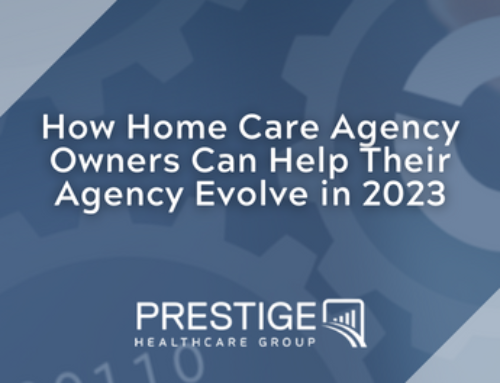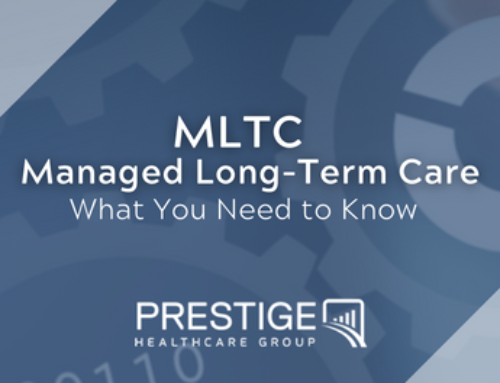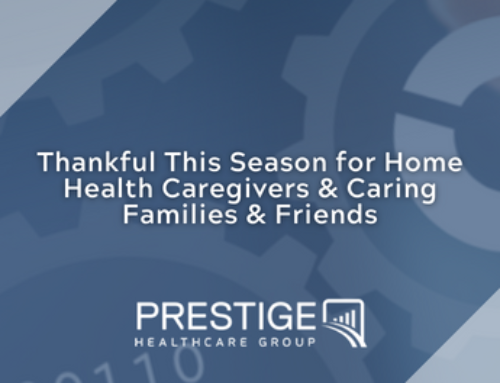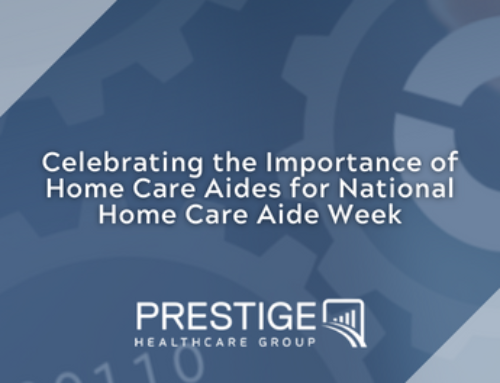Fall Prevention Week – The Importance of Fall Prevention and 4 Ways to Prevent a Fall
Welcome back to the Prestige blog! We hope you’ve been gaining insights and reflecting on the recent blog topics we’ve been touching on. Each post aims to help provide another perspective from inside the industry, and help you to better understand the landscape and climate of home health. This week, September 18-24th is National Falls Prevention Awareness Week, so we wanted to take a minute to talk about why it’s important!
As we age, our mobility, strength, and balance will naturally decline, but that doesn’t mean safety has to take a back seat. Home health providers know how important it is to ensure seniors are proactively cared for in a manner that prevents potential falls, but in honor of falls prevention week, let’s look at the severity of the situation.
According to the CDC, falls rank as a leading cause of death among aging adults all year round. The report states that the adjusted fall death rate is increasing, currently at around 64 deaths per 100,000 older adults. Head over to the CDC website to get an idea of where your state ranks nationally.
A fall can occur due to a myriad of reasons, as accidents are bound to happen with seniors, but that doesn’t mean there can’t be steps taken to prevent the risk. Risk can increase during more inclement seasons, where stability is challenged by icy surfaces and other environmental challenges. Getting out of bed, reaching for an item, or even just trying to use the bathroom can be a risk for an aging adult, and a fall can cause significant physical and emotional damage.
Here are a few potential causes of an increased risk beyond accidents.
- Medications that may cause disorientation, dizziness, or balance issues, or improper management
- Vision or Hearing loss
- Muscle Weakness or Mobility or Balance problems
- Environmental hazards in or around the home
The good news is there are preventative proactive ways that can help to prevent and/or reduce the risk of these controllable factors. Here are 4 proactive ways to prevent an aging adult from taking a consequential fall.
Physical Activity & Fitness
Seniors don’t exactly WANT to get up and move. It’s not always something that an aging person WANTS to do, as any physical activity is a challenge, but exercise and activity is CRUCIAL to fall prevention! We only get one body and as we get up over 65, we begin to lose confidence in the physical ability of our bodies, but that’s why helping the elderly to continue to maximize their ability, balance, and coordination is so vital. Physical fitness is just as much mental as it is physical! Good, healthy exercise can be a powerful confidence builder for an aging adult, and help them to be physically less likely to take a fall.
Medication Management
Relinquishing control of taking care of one’s self to a caregiver or home care provider isn’t easy. As seniors get older managing their own medication can become more and more challenging as more and more medications are necessary. Certain medications can increase the risk of falls because they can lead to lightheadedness or dizziness. Seniors should have a keen awareness of potential side effects, and should consider having a caregiver take over that duty to help avoid wrongful administration or timing of medicines.
Home Safety Evolution
Whether a senior is living alone, in a care facility, patio home, or living at home with a home health provider, there will need to be care given to the safety of the environment. Cords, loose rugs, toys, chairs, decorations, just about anything COULD be a risk. Just as you would “babyproof” a home if hosting a guest with an infant, you’re going to want to ensure that a seniors living environment is free of potential risks. Stairs are also a big risk for some seniors. When thinking about vital daily tasks, take a look at your necessities and how easy they are to access, reach, and store. Everything must be as safe and easy as possible to avoid a fall.
Healthy Hydration & Diet
When any of us don’t drink enough water, we can see a decrease in blood volume, which can lead to a decline in cognitive function and increase the risk of falls. Blood pressure is affected by dehydration, which can lead to dizziness and loss of balance. A proper nutritious diet can also help to ensure all necessary vitamins and minerals are being put in the body to ensure it’s vitality and strength to avoid a fall.
Check Out the National Council on Aging (ncoa) Falls Prevention Awareness Week Promotion Toolkit
These are just a few high level reminders on how to help prevent a fall. This blog helps to serve as an awareness tool, but if you have any questions please don’t hesitate to reach out to speak with a professional here at Prestige! We help our clients and our partners find solutions that help to make today a better life than yesterday! Stay tuned on Linkedin for more home health care content and tips!




